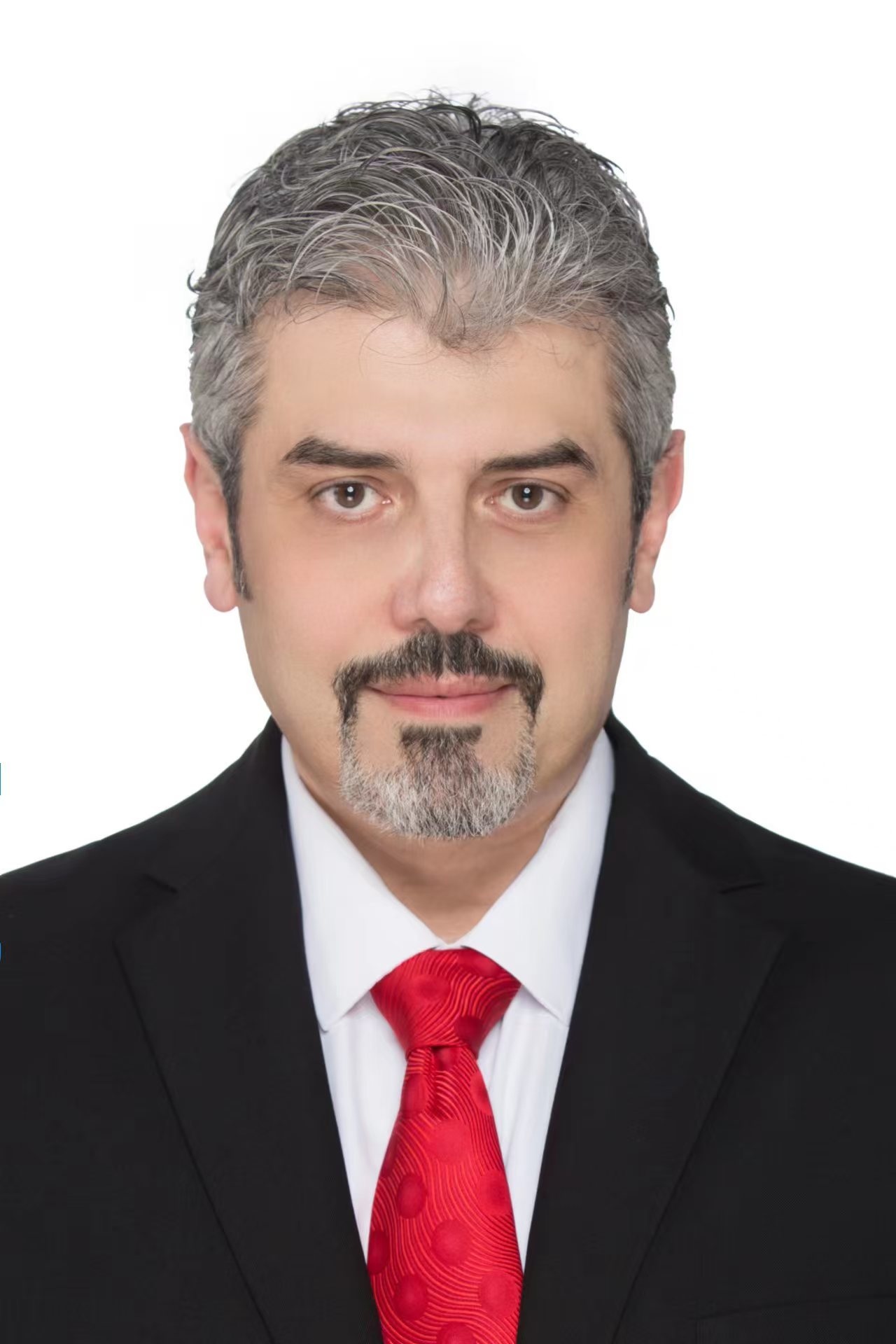
Speakers

Tenured Professor Rustam Shadiev
Zhejiang University, China
Biography: Dr. Rustam Shadiev is a tenured professor at the College of Education, Zhejiang University. He has an accomplished academic career distinguished by significant contributions to the field of educational technology. He earned his PhD from Taiwan Central University in 2012, followed by a postdoctoral fellowship at Taiwan Cheng Kung University. Before joining Zhejiang University, he served as a professor in the School of Education Science at Nanjing Normal University for six years, until 2022. In recognition of his academic excellence, he was awarded the title of Distinguished Professor of Jiangsu Province in 2019.
Dr. Shadiev is a Fellow of the British Computer Society (BCS) and a Senior Member of the Institute of Electrical and Electronics Engineers (IEEE). His outstanding research achievements have earned him recognition as one of the Most Cited Chinese Researchers by Elsevier, SCOPUS, and Shanghai Ranking for four consecutive years (2020–2023). Additionally, he was ranked among Stanford/Elsevier’s Top 2% Scientists in both 2023 and 2024.
A prolific scholar, Dr. Shadiev has authored over 200 publications in prestigious academic journals and conferences. His research focuses on advanced learning technologies, particularly their applications in language learning and cross-cultural education. His work continues to influence global educational practices and research.
Dr. Shadiev is an editorial board member of several esteemed journals, including the Journal of Educational Technology & Society, the Journal of Computer Assisted Learning, and Smart Learning Environments. He also serves as a guest editor for special issues in journals such as Educational Technology & Society and Discover Education.
Dr. Shadiev is an editorial board member of several esteemed journals, including the Journal of Educational Technology & Society, the Journal of Computer Assisted Learning, and Smart Learning Environments. He also serves as a guest editor for special issues in journals such as Educational Technology & Society and Discover Education.
Speech Title: Language Learning in Context: How Familiar and Unfamiliar Environments Shape EFL Learners' Performance and Engagement
Abstract: This keynote presentation explores the influence of contextual environments, specifically familiar and unfamiliar settings, on mobile-assisted language learning (MALL) outcomes among English as a Foreign Language (EFL) learners. Drawing upon two recent experimental studies, the talk examines how real-world environments interact with learners’ cognitive, emotional, and linguistic engagement when completing writing tasks supported by mobile technologies.
In the first study, students engaged in MALL activities within either familiar or unfamiliar environments. The findings revealed that those in familiar settings achieved significantly higher writing performance and post-test scores, and reported stronger emotional and cognitive involvement. The second study addressed the challenges of learning in unfamiliar environments by introducing familiarization strategies. Results showed that students who received such support produced higher-quality writing across all evaluated dimensions—amount, vocabulary, grammar, content, organization, and creativity—compared to their peers without familiarization.
Together, these findings underscore the critical role of learning context in shaping the effectiveness of MALL. The presentation will offer theoretical insights into contextual learning, and provide practical guidance for educators and researchers seeking to design immersive, environment-aware mobile language learning experiences that foster meaningful engagement and improved learning outcomes.

Prof. Rami Khalil
Sichuan International Studies University, China
Biography: Professor Rami Khalil, Professor, Researcher, Entrepreneur, Inventor, Management Specialist, Marketing Specialist, Armenian, holds Class A high-end foreign expert work permit. He holds three international patents, is a member of the editorial board of the journal "International Talent Exchange" of the Ministry of Science and Technology, and has served as the CEO of the Syrian Disability Organization. Professor Rami Khalil has been teaching in our school since 2012 and was awarded the title of professor in 2017. Research Interests: Business Management, Marketing, Cross-Cultural Communication. Published 8 books in recent years. Served as editor of 1 professional magazine. Participated in 16 international seminars and conferences.
8 national provincial and ministerial research projects. Received 8 awards of various kinds. Accepted 8 media interviews. He is a member or visiting scholar of 24 domestic and foreign universities and scientific research institutions. During his teaching in our school, he undertook 24 undergraduate and master's courses. His teaching was serious and responsible, and he was deeply loved by students. He made outstanding contributions in the discipline construction of business and management majors, and exchanges with other international universities. His courses were selected to be recognized by the Chongqing Municipal Education Commission's list of first-class online and offline mixed courses in colleges and universities. In his published books, papers and articles, he is signed by Sichuan Foreign Studies University. Rami Khalil uses his international expertise to contribute to China, serving China wholeheartedly under the influence ** the Communist Party ** China and the guidance ** General Secretary Xi Jinping's goal ** planning "two points", "two places" and "two highs" in Chongqing. Due to Pr**essor Rami Khalil's outstanding contributions in education and research, as well as in spreading Chinese culture and building cultural exchange bridges between China and the world, he was invited to participate in the 2020 ****** Festival Symposium ** Foreign Experts hosted by Premier Li Keqiang in ******* in January 2020. He was elected as my favorite foreign teacher in 2019 and was awarded the "Light ** Civilization" 2020 China Cultural Exchange Person ** the Year.
Through in-depth academic research, Professor Rami Khalil has summarized China's experience in preventing and solving the e****mic and social development problems facing the world. Therefore, the professor is internationally recognized as a foreign ambassador of China. Recently, Professor Rami Khalil published a bilingual book "Miracle Chongqing", which tells the history of Chongqing's urban development and revolution.
Speech Title: The Gateway to the Gulf: Strategic Insights and Emerging Opportunities for Chinese Enterprises - Legal and Commercial Dimensions in the UAE

A. Prof. Sabariah Mohamed Salleh
Universiti Kebangsaan Malaysia, Malaysia
Biography: Associate Professor Dr Sabariah Mohamed Salleh is an expert in media and information literacy who aims to empower society with media and information literacy (MIL) skills. She is JomCheck’s head of secretariat, Malaysia’s first fact checking coalition. She has worked with UNESCO and Google in creating modules and MOOC to inculcate MIL skills among Malaysians. She is currently developing Malaysia's digital literacy framework through her project with the Malaysian Communication and Multimedia Commission. Sabariah received her PhD from University of Vienna in the area of Journalism and Communication Science. She enjoys travelling, hiking and is a self confessed foodie.
Speech Title: Post pandemic and Digital Literacy: A New Framework
Speech Abstract: Since the year of 2000, bilingual teaching and all English have become the focus of educational reform in universities in China. In recent years, with one belt, one road initiative, China increasingly needs compound international talents who are "clear about international law and proficient in English". In order to cultivate such talents, an all English course of public international law has been set up for law students in many universities in China. The traditional teaching methods have encountered many practical problems and difficulties when conducting in English. In order to reform the all-in-English public international law course, the CLIL --- content and language integrated learning should be integrated into the teaching and learning process. CLIL teaching method organically unifies the teaching content and English learning, which is highly appropriate to the all-in-English course of public international law. As for interpreting the application of the CLIL teaching method and its characteristics and merits, some examples are demonstrated in this paper. Moreover, the teaching effects before and after applying CLIL are also illustratied for comparison. The application of CLIL methed in the all-in-English course of public international law are designed from the pre-class preparation of teachers to course language and small activities. Applying CLIL method in the all-in-English course of public international lawnot only helps to cultivate students' reading ability of legal documents in English, but also be conducive to the cultivation of "problem consciousness" and "problem thinking" of both teachers and students, and enable students to understand the theoretical knowledge of international law better and improve their English language ability at the same time in a relaxed and comfortable teaching environment.
WHY TO ATTEND -------------------------------------------------- Learn from experts in your field Expand your professional network Gain new perspectives and insights Present your own research and receive feedback Discover new career paths and job opportunities Expose yourself to new ideas and innovations Explore new cultures and countries Take a break from your routine and recharge Receive a certificate of participation |
We are still actively recruiting speakers for this conference, and interested authors are welcome to contact our conference Secretary or submit your manuscripts to email at Cacawang20131103@163.com